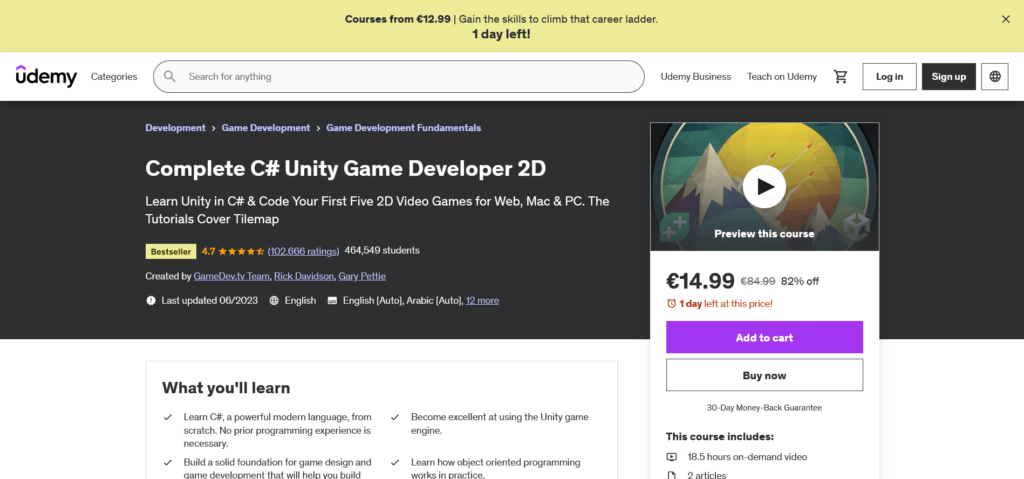Introduction
Are you ready to dive into the exciting world of gaming entrepreneurship? If you’ve ever dream of turning your passion for video games into a lucrative business venture, you’re in the right place. In this comprehensive guide, we’ll explore the essential steps and strategies on how to start a video game business from scratch. Whether you’re an avid gamer with a knack for entrepreneurship or someone looking to capitalize on the booming gaming industry, the insights and tips provided here will set you on the path to success. So, buckle up and get ready to learn how to start a video game business that not only fulfills your passion but also drives profitability in this dynamic market. Ready to embark on your journey to becoming a gaming industry entrepreneur? Let’s dive in and discover how to start a video game business that stands out in the digital realm.
Market Research and Industry Analysis
Before diving into the video game business, it’s crucial to conduct thorough market research and industry analysis. Understand the current trends, demographics, and preferences of gamers. Identify your target audience, and explore potential niches within the gaming market. This information will help shape your business strategy and product offerings.
Define Your Niche and Business Model
The gaming industry is diverse, encompassing various genres, platforms, and business models. Determine your niche and specialize in a specific segment of the market. Whether you focus on mobile games, console games, virtual reality, or esports, defining your niche will enable you to tailor your products and marketing efforts more effectively.
Choose a suitable business model, such as developing and selling games, offering in-app purchases, or providing subscription-based services. Consider a hybrid approach that combines different revenue streams to diversify your income.
Create a Business Plan
A well-thought-out business plan is essential for the success of any venture. Outline your business objectives, target market, competitive analysis, marketing strategy, and financial projections. A comprehensive business plan will serve as a roadmap for your video game business and help attract investors or secure financing if needed.
Develop a Unique Value Proposition
In a competitive market, having a unique value proposition is crucial for standing out. Identify what sets your games apart from others – whether it’s innovative gameplay mechanics, captivating storytelling, or cutting-edge graphics. This unique selling point will be a key factor in attracting and retaining customers.
Build a Talented Team
Assembling a skilled and passionate team is a cornerstone of a successful video game business. Depending on your business model and goals, you may need professionals such as game developers, graphic designers, writers, marketers, and project managers. Collaborate with individuals who share your vision and can contribute to the overall success of your business.
Legal and Regulatory Compliance
Navigate the legal landscape to ensure your video game business complies with copyright laws, intellectual property regulations, and other industry-specific legal requirements. Consider consulting with legal professionals to protect your intellectual property, such as game concepts, characters, and branding.
Develop High-Quality Games
The heart of any video game business lies in the quality of its games. Invest in skilled developers, cutting-edge technology, and robust testing processes to ensure your games meet high standards. Regularly update and improve your games based on user feedback to keep players engaged and satisfied.
Platform Selection and Distribution
Choose the platforms for distributing your games strategically. Consider platforms such as Steam, Epic Games Store, Google Play, Apple App Store, or specific console platforms like PlayStation and Xbox. Develop a multi-platform strategy to reach a broader audience and maximize your game’s potential success.
Marketing and Promotion
Effectively market your games to increase visibility and attract players. Utilize various marketing channels, including social media, influencer collaborations, content creation, and email campaigns. Create a buzz around your games through teaser trailers, gameplay previews, and engaging promotional events.
Monetization Strategies
Implement well-thought-out monetization strategies aligned with your business model. Whether it’s through one-time purchases, in-app purchases, advertising, or subscriptions, choose methods that align with your target audience and the nature of your games. Balance monetization with a positive player experience to build long-term customer loyalty.
Community Engagement
Foster a strong community around your games by actively engaging with players. Respond to feedback, host forums, and participate in gaming events and conventions. Building a community not only enhances player satisfaction but also generates organic word-of-mouth promotion, which is invaluable in the gaming industry.
Analyze Data and Iterate
Leverage analytics tools to track user behavior, monitor player engagement, and gather insights into your game’s performance. Use this data to make informed decisions, identify areas for improvement, and iterate on your games. Continuously evolving and adapting to player preferences will contribute to the long-term success of your video game business.

Best Online Education Platforms to Learn How to Start a Video Game Business
Online education platforms offer a wealth of resources to help aspiring game developers navigate the complexities of the industry. In this article, we will explore the top online education courses platforms that can empower you with the skills needed to kickstart your video game business.
Udemy

Udemy is a leading online learning platform that offers a variety of game development courses suitable for beginners and experienced developers alike. With courses covering topics such as game design, programming languages, and marketing strategies, Udemy provides a comprehensive learning experience. Look for courses taught by industry experts to gain valuable insights into the video game business.
Coursera

Coursera partners with top universities and organizations to provide high-quality courses in game development and business. Specializations and certificates offered on Coursera cover a range of relevant topics, including game design principles, programming languages like Unity and C++, and business strategies for the gaming industry. The platform’s flexible learning options make it accessible to individuals with varying schedules.
LinkedIn Learning

Formerly known as Lynda.com, LinkedIn Learning offers an extensive library of video tutorials and courses on game development, project management, and entrepreneurship. Courses on LinkedIn Learning cover popular game development tools and engines, allowing you to gain hands-on experience while learning essential business skills.
Pluralsight
Pluralsight is a platform known for its technology-focused courses, making it an excellent choice for those interested in the technical aspects of game development. With courses in programming languages, game engines, and software development practices, Pluralsight equips learners with the skills needed to excel in the video game business.
Skillshare

Skillshare offers a diverse range of courses, including those tailored to the gaming industry. Learn from experienced professionals about game design principles, 3D modeling, and animation. The platform’s project-based approach encourages hands-on learning, allowing you to apply your skills directly to your video game business endeavors.
Codecademy

For those looking to master programming languages essential for game development, Codecademy provides interactive and beginner-friendly courses. Learn languages like Python, JavaScript, and C++ to build a strong foundation for your video game business.
edX

edX, a platform founded by MIT and Harvard, offers courses from top universities and industry experts. Explore courses in game development, entrepreneurship, and marketing to gain a well-rounded understanding of the skills required to start and manage a successful video game business.
Top 10 Questions and Answers About How to Start a Video Game Business
1. How do I start a video game business from scratch?
Starting a video game business from scratch involves a systematic approach. Begin by conducting thorough market research, defining your niche, creating a business plan, assembling a talented team, and developing a unique value proposition. These foundational steps lay the groundwork for a successful video game business.
2. What skills do I need to start a video game business?
Success in the video game industry requires a diverse set of skills. Key skills include game development expertise, project management, marketing, creativity, and understanding market trends. Assembling a team with complementary skills is essential for a well-rounded approach to game development and business management.
3. How much does it cost to start a video game business?
The cost of starting a video game business varies based on factors such as the scale of operations, team size, technology requirements, and marketing strategy. Small indie studios may have lower initial costs, while larger enterprises may require substantial investment. Create a detailed budget in your business plan to estimate the funds needed for development, marketing, and ongoing operations.
4. What are the most profitable niches in the video game industry?
Identifying profitable niches is crucial for success. Mobile gaming, esports, virtual reality, and niche genres with dedicated fan bases are currently profitable segments. However, trends can change, so staying informed about industry shifts and emerging niches is essential for making strategic business decisions.
5. How do I market my video game effectively?
Effective marketing is vital for gaining visibility in the crowded gaming market. Utilize social media platforms, influencer collaborations, content creation, and email campaigns to reach your target audience. Create engaging promotional materials, such as teaser trailers and gameplay previews, to generate excitement around your games.
6. What are the legal considerations when starting a video game business?
Navigating the legal landscape is crucial to protect your intellectual property and ensure compliance with industry regulations. Consult with legal professionals to address issues such as copyright, trademarks, licensing agreements, and privacy policies. Clearing legal hurdles upfront will safeguard your business in the long run.
7. How do I choose the right platforms for distributing my games?
Selecting the right distribution platforms is a strategic decision. Evaluate platforms such as Steam, Epic Games Store, Google Play, Apple App Store, and console platforms based on your target audience and game genre. A multi-platform approach can broaden your reach and maximize potential sales.
8. What are the best monetization strategies for a video game business?
Monetization strategies depend on your business model and target audience. Consider options such as one-time purchases, in-app purchases, advertising, and subscription services. Balancing revenue generation with a positive player experience is crucial for building trust and fostering long-term customer loyalty.
9. How do I engage with the gaming community?
Building a strong community around your games involves active engagement. Respond to player feedback, host forums, participate in gaming events, and leverage social media platforms. A dedicated community not only enhances player satisfaction but also serves as a valuable promotional asset.
10. What analytics tools should I use to track the performance of my games?
Analytics tools are instrumental in tracking user behavior, monitoring player engagement, and gathering insights. Popular tools include Google Analytics for website traffic, Unity Analytics for game performance, and social media analytics platforms. Regularly analyze data to make informed decisions and iterate on your games based on player preferences.
Conclusion
In conclusion, starting a video game business is an exhilarating journey filled with endless possibilities. By following the steps outlined in this guide, you’re equipped with the knowledge and strategies needed to successfully navigate the intricacies of the gaming industry. Remember, the key to thriving in this competitive landscape lies in innovation, dedication, and a deep understanding of your target audience. As you embark on your entrepreneurial endeavor, always keep in mind the core principles of how to start a video game business. Whether you’re developing your own games, launching a gaming cafe, or diving into game streaming and content creation, the opportunities are vast. So, leverage your passion for gaming, harness the power of digital platforms, and take decisive action to bring your vision to life. With perseverance and strategic planning, you can turn your dream of how to start a video game business into a rewarding reality.














